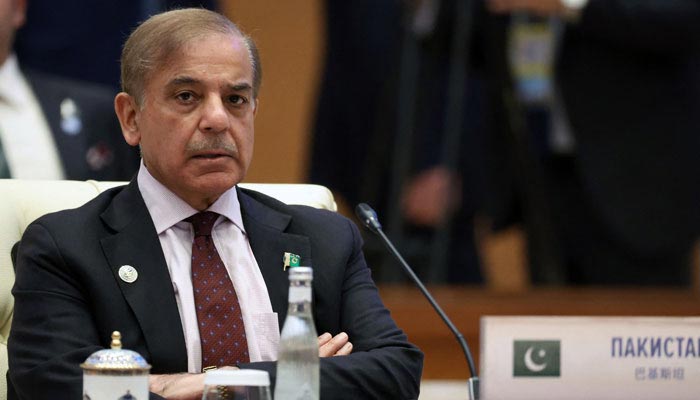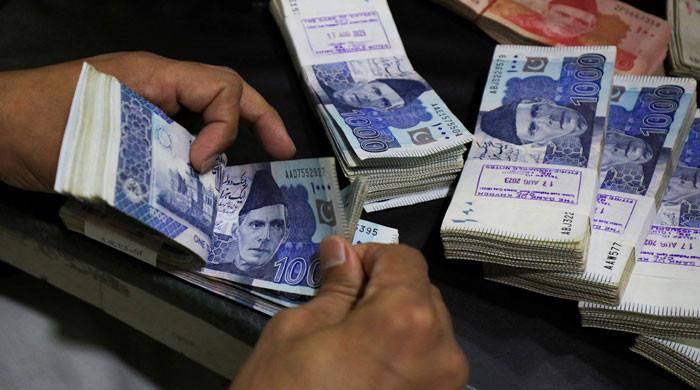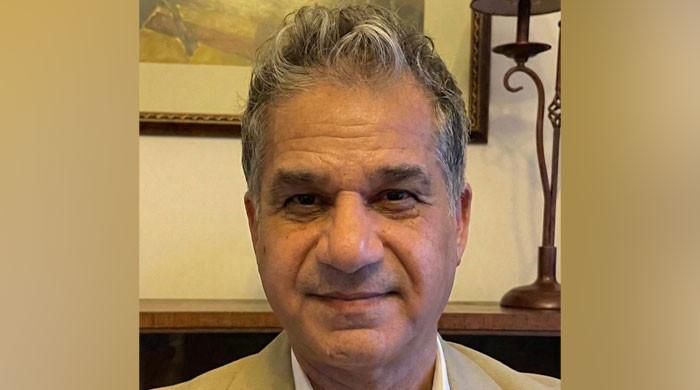Austerity measures: 10% cut in govt employees' salary under consideration
Govt finalising recommendations on austerity as it seeks another International Monetary Fund (IMF) tranche
January 25, 2023

- Proposals include slashing expenditures of ministries/divisions by 15%.
- NAC recommends end to utilising funds for provincial nature projects.
- Also considers reducing number of federal cabinet.
ISLAMABAD: The National Austerity Committee (NAC) — constituted by Prime Minister Shehbaz Sharif — is considering different measures including cutting down the salaries of government employees by 10% across the board, The News reported Wednesday.
The proposals also include cutting down expenditures of ministries/divisions by 15%, and reducing the number of federal ministers, ministers of state, and advisers from 78 to 30 only while the remaining should work on a pro bono basis.
The recommendations would be finalised today (Wednesday) and the committee will send the report to PM Shehbaz.
“The NAC is proposing to reduce the number of ministers, ministers of state, advisers and special assistants to PM to 30 only, while the remaining if required, should not enjoy any resources from the national exchequer. They should work on a pro bono basis,” sources confirmed to The News on Tuesday.
The government is finalising recommendations on austerity as it seeks another International Monetary Fund (IMF) tranche but the government is reluctant to implement the conditionalities. This hesitation created a deadlock for the last two and a half months with the IMF.
The NAC also recommended an end to utilising funds for provincial nature projects and imposing a ban on public sector enterprises to secure loans through government guarantees and several others. However, the NAC is reluctant to take up big ticket items for major expenditure cuts on budgetary resources such as reducing the number of ministries/divisions after the 18th Amendment as overlapping of ministries/divisions and departments continues to work unabated.
Several overlapping ministries/divisions are working at the federal level and the Centre should restrict their number to five to six only, including defence, foreign affairs, finance, and security while all other devolved ministries should be abolished.
The committee continued its deliberations for the second consecutive day at the Finance Division. Many of the participants took part from other cities through online arrangements.
It is strange that while the government is working to finalise recommendations on austerity, it jacked up the Sustainable Development Goals (SDGs) Achievement Programme by Rs3 billion and increased discretionary funding from Rs86 billion to Rs89 billion, which is utilised through parliamentarians.
It remains to be seen how the NAC will deal with losses of giant public sector enterprises such as Pakistan International Airlines (PIA) whose losses this year had gone up to Rs67 billion, whereas Pakistan Steel Mills, PASSCO, Power Distribution Companies and others were facing massive losses. The power sector alone saw losses of Rs1,600 billion in the last financial year.
The NAC also considered a proposal to freeze discretionary funds of intelligence agencies, including Inter-Services Intelligence (ISI) and Intelligence Bureau (IB). The committee considered a proposal to reduce defence expenditures but the secretary of defence replied that it might not be possible in the wake of higher inflation and depreciation in exchange rates. However, the committee might consider rationalising non-combat expenditures.
The committee considered slapping a ban on buying vehicles, freezing all perks and privileges locally and abroad and reducing the number of redundant posts in different ministries and divisions.
The World Bank had recommended abandoning PASSCO as there should be direct linkages between farmers and millers and such kind of inter-mediatory organisation should be abolished. The PASSCO’s has accumulated Rs900 billion loan and it’s piling up another kind of circular debt, which the government will have to clear by end of the day.
Top official sources said that the NAC had decided in its internal meeting to finalise recommendations within five days, so they could table the proposals much before the 15-day deadline notified by the Finance Division.
One officer of the Finance Ministry commented that the NAC was making major recommendations but it would be hard for the incumbent government to implement any of those.
It will remain just a debating club and the government will implement only window-dressing actions instead of moving towards taking any major decision at the twilight of its tenure when the political temperature is increasing with every passing day.
The premier constituted the NAC under the chairmanship of former bureaucrat Nasir Mahmood Khosa last week.











